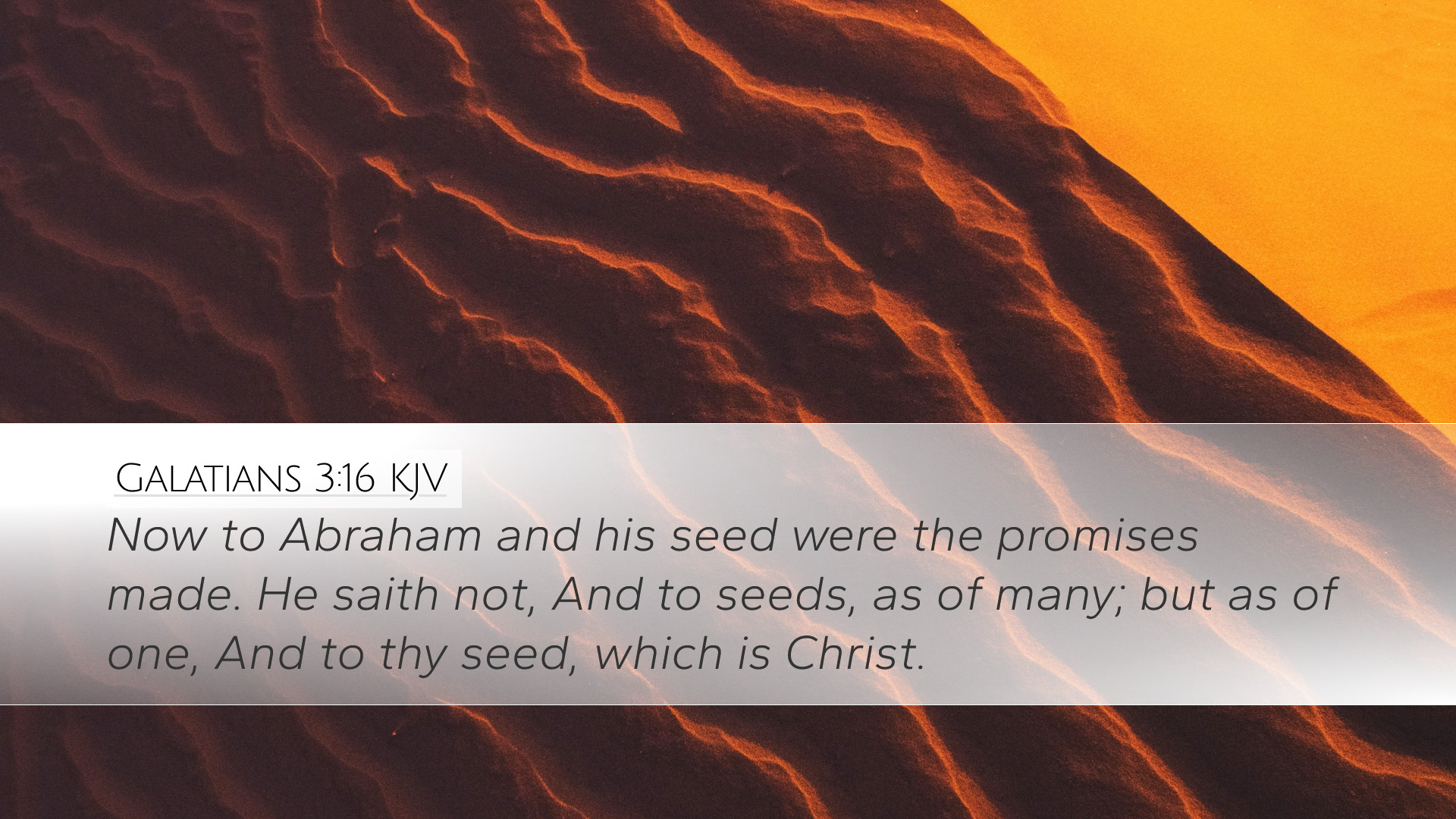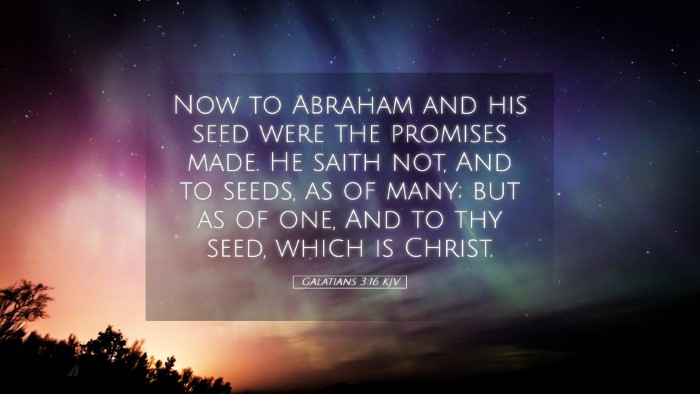Commentary on Galatians 3:16
Verse: "Now to Abraham and his Seed were the promises made. He does not say, 'And to seeds,' as of many, but as of one, 'And to your Seed,' who is Christ."
Introduction
The apostle Paul, in his epistle to the Galatians, addresses the essential matter of the promises made to Abraham and their fulfillment in Christ. Galatians 3:16 serves as a pivotal verse that clarifies the singular nature of the promises and their relationship to Christ, emphasizing the theological significance of Jesus as the promised Seed. The insights from public domain commentaries provide a rich tapestry of understanding regarding this verse, drawing connections with Old Testament covenantal themes, interpretations of 'Seed', and implications for faith and law.
The Nature of the Promise
Matthew Henry emphasizes that the promise made to Abraham included not just physical descendants but pointed ultimately to Christ. He highlights that it was through Christ that the blessing of Abraham would extend beyond Israel to all nations: "This promise confirmed the covenant made with Abraham, which established the foundation for all spiritual blessings." Henry notes the importance of recognizing the uniqueness of this promise, as it is singular ("Seed"), suggesting a focused fulfillment in Christ rather than a broad interpretation of the term.
Detailing 'Seed' vs. 'Seeds'
Albert Barnes provides a critical examination of the distinction between 'Seed' and 'seeds' in this verse, suggesting that Paul’s argument draws from a precise reading of Scripture. Barnes asserts that the singular term indicates the particularity of Christ's role in God's plan, countering any notions that the promises were merely for a collective group. This narrow interpretation directs the reader’s understanding that Christ embodies the ultimate fulfillment of the Abrahamic covenant, thus enhancing the theological significance of His sacrificial work.
Typological Interpretation
Adam Clarke draws attention to the typological dimensions of the promise, noting that the seed of Abraham — while referring to Isaac and later Israel — ultimately prefigures Jesus Christ. Clarke elaborates on how Old Testament figures and events find their ultimate significance in Christ, and he emphasizes that understanding 'Seed' in this context allows for a deeper realization of how God's redemptive history is unfolded through one person's lineage. Clarke's perspective on typology serves to bridge the Old Testament and New Testament, affirming the continuity of God's salvation plan.
Implications for Faith and Law
The theological ramifications of Galatians 3:16 are profound for understanding justification by faith as opposed to works of the law. Henry notes that the promise to Abraham predated the law, thus establishing a framework whereby faith in Christ fulfills the promises made to the patriarchs. This highlights the necessity of faith over legal observance, a theme that Paul vigorously defends throughout Galatians. Furthermore, Barnes articulates that believers, as heirs of the promise through faith in Christ, are included in this divine coverage, inviting all to be partakers in the blessings originally promised to Abraham.
Conclusion
In conclusion, Galatians 3:16 is not only a testament to God's enduring promises but also a crucial pillar for understanding the identity of Christ as the fulfillment of those promises. The insights from Henry, Barnes, and Clarke collectively affirm that the singularity of 'Seed' communicates a focused divine purpose that transcends merely physical genealogy. For pastors, students, theologians, and scholars, this verse stands as an authoritative message of hope, illuminating the pathway of faith from the ancient promises to their present-day realization in Christ.


